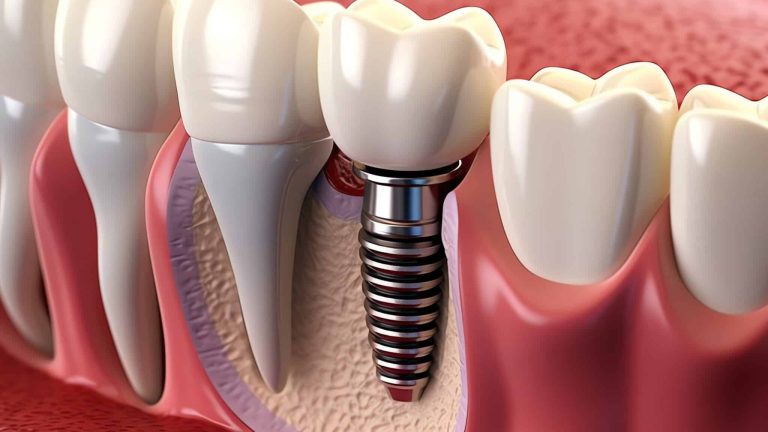Oral health is fundamental to overall well-being, yet many people postpone their dental visits until the problem becomes severe. Often, pain or discomfort in the mouth may seem temporary, but ignoring certain symptoms can lead to serious complications.
If you experience any of these five warning signs, it is important to schedule a dental consultation immediately.
1. Intense or Persistent Dental Pain
Toothache or dental pain can be a sign of multiple issues, such as deep cavities, infections, or inflammation of the dental pulp. When the pain is persistent, sharp, or stabbing, it should not be ignored, as it could indicate:
- Advanced cavities that have reached the nerve of the tooth.
- Dental infections or abscesses that can spread to other parts of the body if left untreated.
- Tooth fractures that require immediate attention to prevent further complications.
What to do?
Do not rely solely on painkillers. If the pain lasts more than 24 hours or intensifies, visit the dentist as soon as possible.
2. Bleeding or Inflamed Gums
Occasional bleeding while brushing may seem normal, but if it occurs frequently or is accompanied by swelling and sensitivity, it could indicate more serious issues, such as:
- Gingivitis: Inflammation of the gums caused by the accumulation of bacterial plaque.
- Periodontitis: An advanced gum infection that can lead to tooth loss if not treated promptly.
- Poor oral hygiene: Tartar buildup can irritate the gums and cause frequent bleeding.
What to do?
Do not ignore these symptoms. A dentist can perform a deep cleaning and recommend appropriate treatment to prevent further inflammation.
3. Excessive Sensitivity to Cold or Heat
It is common to feel slight sensitivity when consuming cold or hot foods, but if the pain is severe and prolonged, it may indicate:
- Worn dental enamel, exposing the sensitive dentin.
- Advanced stage cavities affecting the nerve of the tooth.
- Gum recession, which leaves the tooth roots exposed.
- Tooth fractures that allow stimuli to reach the internal nerves.
What to do?
Avoid foods that are too hot or too cold and consult your dentist to evaluate the cause of the sensitivity and prevent further problems.
4. Persistent Bad Breath or Unpleasant Taste in the Mouth
Occasional bad breath is normal, but if it becomes constant despite good oral hygiene, it could be a sign of:
- Oral infections, such as dental abscesses or gum disease.
- Advanced cavities that lead to the buildup of bacteria in deep crevices.
- Dry mouth (xerostomia), reducing saliva production and favoring bacterial growth.
An unpleasant or metallic taste in the mouth can also be a sign of an infection that requires immediate treatment.
What to do?
If bad breath persists, visit your dentist to rule out serious issues and receive appropriate treatment.
5. Tooth Loss or Unusual Tooth Movement
Permanent teeth should not become loose or fall out without an apparent reason. If you notice that one of your teeth feels loose or has suddenly fallen out, it could be due to:
- Advanced periodontal disease, which weakens the supporting tissues of the tooth.
- Trauma or injury, which can damage the tooth’s root.
- Severe infections, which deteriorate the bony structure that supports the teeth.
What to do?
If a tooth becomes loose or falls out, see your dentist immediately. In some cases, a detached tooth may be re-implanted if action is taken quickly.
Conclusion
If you experience any of these five warning signs, do not wait for the problem to worsen. A timely diagnosis and treatment can prevent major complications and help you maintain a healthy, functional smile.
At Clínicas La Guardia, our dental specialists are ready to address any dental emergency. Do not ignore these signs and schedule your appointment as soon as possible.




